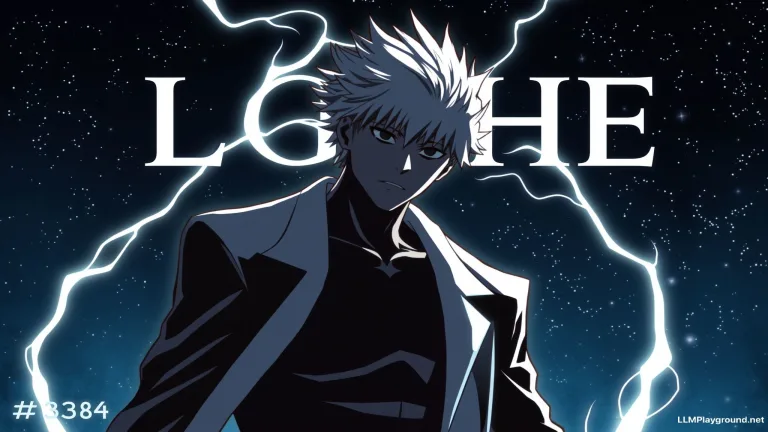
Introduction
Light Yagami, the brilliant yet morally ambiguous protagonist of the renowned anime and manga series 'Death Note,' captivates audiences with his intelligence and ambition. However, despite his initial success in eliminating criminals and creating a new world, Light's journey ultimately leads to his downfall as the infamous Kira. In this blog post, we'll explore the key factors and decisions that contributed to Light's tragic end. Throughout his descent, various elements play a crucial role, such as his inflated sense of superiority, the escalating stakes, and the relentless pursuit of justice that clouds his judgment. We'll delve into the relationships that define Light's character arc, particularly his turbulent interactions with L, Near, and even his own allies, revealing how trust and betrayal intertwine in his life. As we analyze his psychological state, the moral dilemmas he faced, and the ultimate consequences of his actions, you will gain a comprehensive understanding of why Kira, once a beacon of hope in Light's eyes, spiraled into a figure of doom. Join us as we dissect the complex layers of Light Yagami's character and unravel what went wrong in his quest for a utopian existence, transforming him from a hero to a tragic symbol of hubris.
The Rise of Kira: A Glimpse into Glory
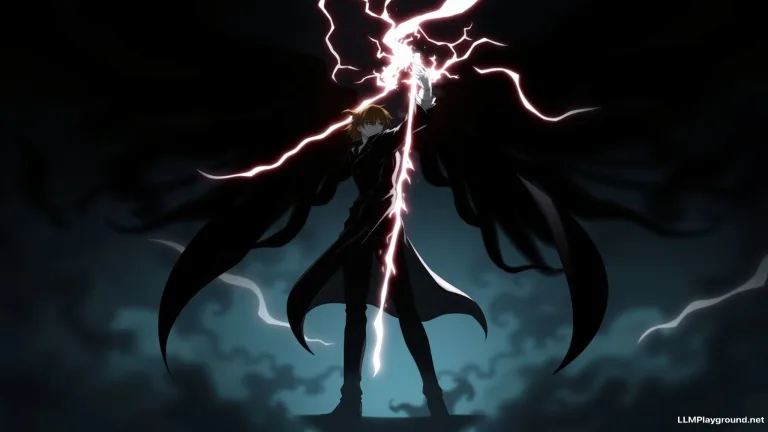
Light Yagami, the genius high school student, emerged as Kira, a vigilante with a god-like complex. His journey began when he stumbled upon the Death Note, a mysterious notebook that allowed him to kill anyone whose name he wrote in it. This newfound power ignited a moral crusade in Light, as he believed he could rid the world of crime and create a utopia where only those deserving of life would thrive. As Kira, he captured the public's imagination, gaining both followers and notoriety. Light's intelligence and strategic planning allowed him to stay several steps ahead of law enforcement and the enigmatic detective L, adding to his allure as a charismatic anti-hero.
However, Kira's ascent was not without its pitfalls. While most saw the killings as a chance for justice, detractors criticized his ruthless methods. His desire for a perfect world blinded him to the collateral damage, including the loss of innocent lives and the impact on those left behind. As fame surged, so did the scrutiny. Light's dual identity created an internal conflict, as he began to engage in increasingly desperate measures to protect his secret. The pressure of maintaining his facade also fueled his hubris, setting the stage for his eventual downfall. Kira's rise was marked by brilliance and charisma, but his twisted sense of morality ultimately sowed the seeds of his undoing.
Ambition Gone Awry: The Downfall Begins
Light Yagami, once a brilliant and promising high school student, found himself spiraling down a dark path fueled by his overwhelming ambition. He began his journey with a noble idea to create a world devoid of crime. However, as we delve into the early stages of Kira's reign, it's clear that ambition, when left unchecked, can easily turn destructive. Light’s thirst for power and control led him to believe he was above the law, isolating him from true morality and inevitably paving the way for his downfall.
At first, Light successfully eliminated numerous criminals, gaining followers and a sense of invincibility. Yet, his growing hubris blinded him to the looming consequences of his actions. Each life he took built up a false sense of security, but it also attracted the attention of formidable adversaries like L, who was relentless in his pursuit of justice. Light underestimated the complexities of his situation, leading to his eventual missteps. The combination of pressure and paranoia began to unravel his carefully constructed persona, highlighting that the road to hell is often paved with good intentions, especially when those intentions become tainted by ambition.
The Cost of Power: Sacrifices and Struggles
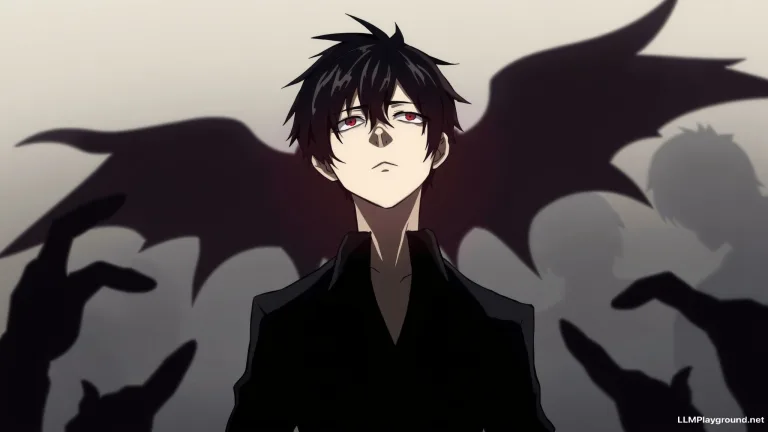
Light Yagami's journey from a high-achieving student to the infamous Kira highlights the heavy toll that the pursuit of power can take. As he started wielding the Death Note, he initially saw himself as a god, enacting his own version of justice while ridding the world of criminals. However, the allure of power often comes with significant sacrifices. Light became increasingly isolated, losing friendships and estranging his family as he delved deeper into his quest for a 'better' world. This isolation is a crucial element that contributed to his downfall. While he gained a ruthless following and commanded fear, the emotional connections that once grounded him dissipated, leaving him dangerously alone in his ambition.
Moreover, the psychological burden of maintaining this façade of a perfect ally took its toll. Light's constant battle to stay several steps ahead of his adversaries, especially L, drained him mentally and emotionally. The pressures of manipulation led Light to make increasingly desperate choices, ultimately steering him towards paranoia and erratic behavior. As the layers of his dual identity began to entangle, the very power he coveted transformed into a double-edged sword, undermining his confidence and strategies. The cost of power for Light Yagami was not just his morality, but also his sanity, demonstrating a profound lesson: the higher the pedestal, the harder the fall.
Intellectual Battles: Just How Far Can Genius Go?
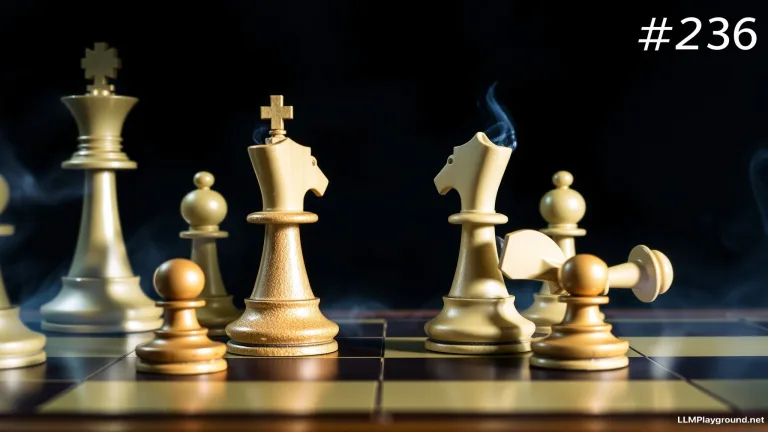
Light Yagami, the brilliant mind behind the Kira persona, epitomizes the age-old question of whether intellect alone is enough to secure dominance. From the onset, his strategic prowess allowed him to outsmart the police and even the mighty L in their intense intellectual duel. However, as the stakes escalated, so too did the complexity of his plans. This section examines how Light’s genius, initially his greatest asset, eventually turned into his Achilles' heel. The very traits that made him a formidable opponent also led to overconfidence, as he began to underestimate those around him, including his white-knuckled opponents and allies alike.
In the world of Death Note, intellect must be balanced with emotional intelligence and strategic foresight. Light's downfall highlights the limits of a rash and singular focus in the face of moral ambiguity. As he became increasingly obsessed with his vision of a 'better world', he inadvertently alienated potential allies and disregarded crucial emotional and ethical considerations that could have swayed others to his side. This resulted in a series of miscalculations that ultimately betrayed his vision. In essence, this narrative shows us that genius doesn’t always guarantee success; it’s the application of that intelligence, tempered with humility and adaptability, that determines the true victor in a battle of wits.
Isolation: The Loneliness of a World-Ruler
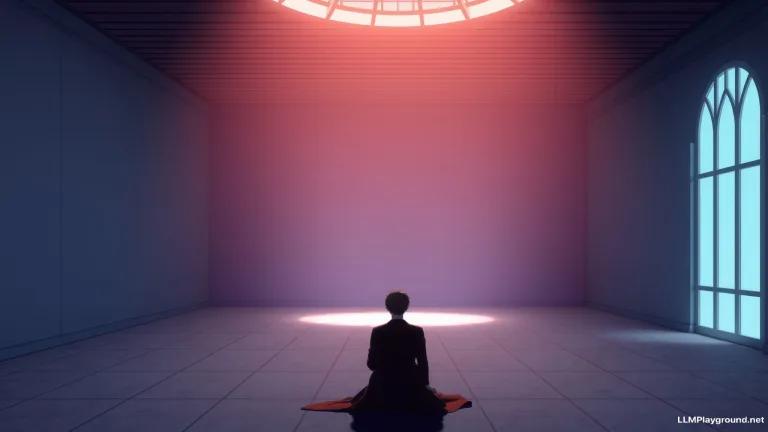
Light Yagami, known as Kira, sought to reshape the world according to his vision of justice. However, as he rose to power, he found himself increasingly isolated. Initially, his charisma and intelligence attracted a following among those who believed in his cause. Yet, his ultimate goal of becoming a god-like figure created a rift between him and those around him. The more he distanced himself from human connections, the more he lost the camaraderie and support that could have strengthened his mission. Ignoring the emotional necessities of meaningful relationships left him vulnerable and alone.
As Kira's actions grew more ruthless, the fear and distrust he instilled in others deepened his isolation. Close allies became potential enemies, and friendships turned into dangerous liabilities. Light's descent into moral ambiguity isolated him from his own humanity, ultimately causing him to lose sight of what he initially wanted to achieve. While he believed he was destined for greatness, the lonely path he chose only led to his downfall. Rather than bringing people together, his quest for absolute power resulted in a world where he was constantly looking over his shoulder, unable to trust anyone. In the quest to be a ruler, he overlooked an essential truth: even the mightiest need connections for strength, understanding, and support.
Allies Turned Adversaries: The Breaking Bonds
In the world of 'Death Note', Light Yagami’s transformation from a diligent student to the feared vigilante, Kira, was marked by his cunning strategic mind and an unwavering belief in his mission. However, as the series progressed, the very allies who once supported his cause began to view him with suspicion. One of the pivotal turning points for Light was his relationship with allies like Misa Amane and L. While Misa was infatuated with Light and willing to help him execute his plans, her undying loyalty ultimately became a double-edged sword. As Light's thirst for power grew, he started to see those around him not as friends, but as pawns in his grand game of justice. This shift in perception alienated both his allies and his family, leading to fractured relationships and increased tension.
Light Yagami’s downfall can be traced back to this betrayal of trust. His once close bond with L evolved into a deadly cat-and-mouse game, where strategies took precedence over loyalty. As L began to connect the dots, the stakes escalated, revealing Light's darker side. Paranoia set in as Light became more ruthless, ultimately sacrificing anyone who threatened his carefully constructed empire of justice. Remarkably, the more he distanced himself from his allies, the closer he brought upon his own destruction. In a quest to eliminate all opposing forces, Light underestimated the power of collaboration. The disintegration of these crucial alliances highlighted not only his strategic miscalculations but also the devastating impact of his evolving morality. Light Yagami's tragic journey reminds us that in the pursuit of power, the bonds we break can ultimately lead to our downfall.
Unraveling the Master Plan: Mistakes Made
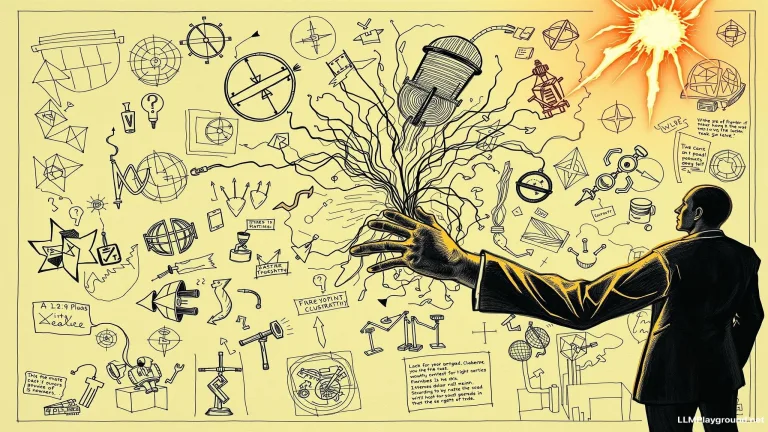
Light Yagami, the enigmatic genius behind the Kira persona, meticulously crafted a master plan to rid the world of criminals. However, beneath his brilliant strategy lay significant mistakes that ultimately led to his downfall. Initially, Light underestimated the determination and intellect of his opponents, particularly L, who was equally as cunning. This oversight allowed L to counter Light’s moves, inching closer to uncovering his identity. Additionally, Light's overconfidence resulted in reckless decisions, such as killing off those who got too close to the truth. This not only drew further suspicion but also created a web of betrayal among his allies, most notably when he manipulated Misa Amane and ultimately sacrificed her for his own ends.
Another critical misstep in Light’s plan was his failure to adapt quickly to unforeseen events. When new players entered the game, such as Near and Mello, Light clung too tightly to his original strategies. He underestimated their capabilities, which provided them with the opportunity to exploit his weaknesses. Light's rigid adherence to his belief in his moral righteousness blinded him to the need for flexibility in his tactics. As clever as he was, these mistakes became the chinks in his armor, slowly unraveling his carefully constructed facade. In the end, Light's downfall serves as a cautionary tale of how overconfidence and a lack of adaptability can lead even the brightest minds to failure.
Fateful Choices: No Turning Back
Light Yagami, the genius teenager turned infamous Kira, found himself at a crossroads where every decision held monumental consequences. Initially driven by a fervent desire to rid the world of evil, Light’s righteous mission spiraled into a tangled web of deception and morality dilemmas. The pivotal choices he made reflected not just a distortion of his ideals, but a gradual descent into a world where his thirst for power overshadowed his original intentions. It begs the question: where did it all start to go wrong? The slippery slope began the moment he decided to take justice into his own hands, setting a precedent for actions driven by vengeance instead of righteousness, creating an irreparable divide between himself and his former self, the law-abiding student aiming for a brighter future.
With each life he extinguished, Light’s choices became increasingly darker, illustrating that the path to absolute power is fraught with peril. He neglected vital relationships, betraying allies like Misa Amane and even pushing away his own father, who was tirelessly working to capture Kira. At this point, there was no turning back. Light’s fateful decisions culminated in isolation, ultimately sealing his fate as he became the very thing he sought to eliminate—corrupt and tyrannical. As his world crumbled around him, we see that Kira's downfall was not merely due to his actions but the consequences of choices that left no room for redemption. Thus, he traded his humanity for a fleeting vision of a utopia that would never come.
The Final Showdown: Clash of Ideals
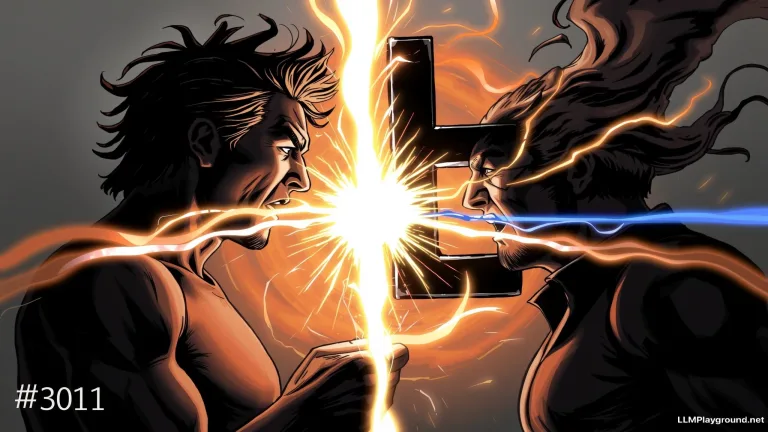
The final confrontation between Light Yagami and his pursuers serves as a poignant reflection on the clash of ideals that have driven the narrative of Death Note. Light, who once envisioned himself as the savior of humanity, is pitted against L and, ultimately, Near, who symbolize justice and moral righteousness. Throughout the series, Kira’s self-righteous beliefs progressively distort his vision, leading him to make choices that erode his initial altruistic intentions. This escalating conflict underscores the thematic essence of the show; it’s not merely a battle of wits but a fundamental struggle between two opposing ideologies—absolute justice versus moral compassion.
As the final showdown draws near, Light becomes ensnared in his own web of arrogance and manipulation. The very traits that once made him a formidable opponent begin to unravel, revealing vulnerability beneath the surface. It’s a classic case of hubris; his overconfidence clouds his judgment, leading to miscalculations and eventual failure. The battle of ideals in the series culminates in significant consequences, highlighting how unchecked ambition can spiral into destruction. As we dissect Light's downfall, it serves as a stark reminder of the pitfalls of moral absolutism and the complexities of justice, leaving us questioning the true essence of right and wrong.
Legacy of Kira: Lessons Learned from Downfall
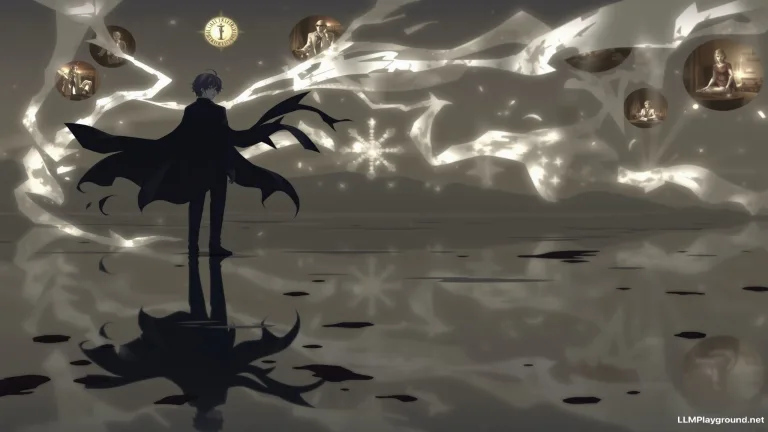
Kira, or Light Yagami, is often remembered as one of anime's most complex anti-heroes. His descent from a clever college student obsessed with justice to a feared killer presents us with profound lessons in morality and power dynamics. One critical lesson is the importance of accountability. Light initially operated under the guise of a savior, but as he became more entrenched in his role as Kira, he lost sight of true justice. This leads to a crucial realization: even the best intentions can spiral into tyranny without checks and balances. Kira's downfall signifies the danger of operating in isolation without moral scrutiny or the potential consequences of absolute power.
Another lesson we can draw from Kira's legacy is the peril of hubris. Light's unwavering confidence in his intellect and plans blinds him to the growing suspicion of his adversaries. This aspect of his character teaches us that overconfidence can cloud judgment and lead to devastating mistakes. As he becomes careless, his carefully constructed identity begins to unravel, showcasing that arrogance often sets the stage for one’s undoing. Therefore, Light's arc serves as a cautionary tale, highlighting the importance of humility and the continuous evaluation of one's moral compass, especially when wielding significant power. Kira's story ultimately begs the question: how far are we willing to go for our version of justice?
Conclusion
In conclusion, Light Yagami's downfall serves as a cautionary tale about the dangers of unchecked ambition, moral absolutism, and the complexities of human nature. His initial aim to rid the world of evil ultimately led him down a path of isolation, paranoia, and self-destruction. As he delved deeper into the role of Kira, Light lost sight of the very values he sought to uphold, allowing power to corrupt him completely. His relationships became strained, transforming allies into enemies and leading to betrayals that sealed his fate. Ultimately, it's the tragic irony of Light's story—the more he sought control and dominance, the more he became a prisoner to his own ideals. Through this exploration of what went wrong for Kira, we not only reflect on Light's choices but also on the broader implications of justice, morality, and the eternal struggle between good and evil. As fans of 'Death Note,' we are left with lingering questions about the nature of power and the real cost of pursuing an idealized vision of a perfect world.
Frequently Asked Questions (FAQs)
Q: What led to Light Yagami's downfall?
A: Light's downfall stemmed from his hubris, moral corruption, and the escalating conflicts with rivals like L and Near.
Q: Did Light ever realize his mistakes?
A: Light's arrogance prevented him from acknowledging his mistakes, leading to his ultimate destruction.
Q: How did Light's relationships impact his fate?
A: Light's relationships deteriorated over time due to deception and betrayal, contributing significantly to his downfall.
Q: What philosophical themes are explored in 'Death Note'?
A: The series explores themes of justice, power, and the moral implications of pursuing an ideal society at any cost.
Q: Can Light be seen as a tragic hero?
A: Yes, Light embodies the tragic hero archetype, as his noble intentions become distorted by ambition and power.
